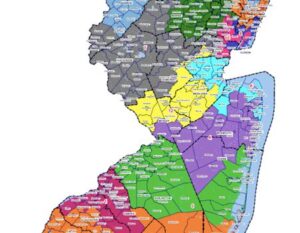The Rules and Laws that Define our Election Process
From 1776 to 1791, America’s founders envisioned that the federal and state government structures would be small, with limited authority, focused on securing the core unalienable Rights endowed upon all men by their Creator.
Yet, from the approval of the U.S. Constitution to current times, government structures have grown like cancer. More and more complexities have been introduced. Today, the overlap and detail are so overwhelming that literally no one knows ALL the laws and rules. This creates untold opportunity for mistakes or abuses in the application of laws.
SCHEDULE of LAWS
Federal Laws
1993 / 1995
For Federal Elections
NATIONAL VOTER REGISTRATION ACT (NVRA) (“motor voter act”)
- Required States to provide voter registration opportunities if a person applies for or renews a driver’s license or applies for public assistance
- Prohibits States from removing voters from the registration rolls unless strict criteria are met – this is the source of criticisms that voter rolls are bloated
- In 1986 a separate law was enacted to require states to mail federal voter registration forms to overseas and military voters and to permit them to register to vote through the mails (“Uniformed and Overseas Citizens Absentee Voting Act (UOCAVA)
- In 2013, the U.S. Supreme Court disallowed a requirement by Arizona that applicants to vote provide proof of citizenship
- Wikipedia summary of NVRA (https://en.wikipedia.org/wiki/National_Voter_Registration_Act_of_1993)
2002
HELP AMERICA VOTE ACT (HAVA)
- Required States to build single Voter Registration Database
- Replaced punch-card and lever-based voting systems
- Created the Election Assistance Commission to assist in the administration of federal elections; and
- Established minimum election administration standards
- HAVA mandates that all states and localities upgrade many aspects of their election procedures, including their voting machines, registration processes and poll worker training. The specifics of implementation were left to each state, which allows for varying interpretations of the federal law.
- Wikipedia summary of HAVA (https://en.wikipedia.org/wiki/Help_America_Vote_Act)
2004
HELP AMERICA VOTE VERIFICATION (HAVV)
- Identity verification process for voter applicants without a driver’s license
- Motor Vehicle Commissions inquire of federal Social Security Administration
- MVC submits applicant’s name, date of birth, and last 4 digits of SSN
- Social Security provides feedback of: “no match,” “single match alive,” “single match deceased,” “multiple matches alive,” “multiple matches deceased,” “multiple matches alive/deceased,” or “invalid input data.”
- THOUSANDS of identity inquiries are submitted by New Jersey monthly
- THOUSANDS of results are returned “no match”
- Wikipedia summary of HAVV ( https://www.ssa.gov/open/havv/ )
2024
* Pending
SAFEGUARD AMERICAN VOTER ELIGIBILITY ACT (SAVE ACT) – Pending
- Presently, it is illegal for non-citizens to vote in federal elections, but no one verifies citizenship when a person registers to vote. States are not currently required to obtain documentary proof of U.S. citizenship before an individual registers to vote.
- S. 4292 – If passed, would amend the NVRA to:
- Would require states to establish a process to remove non-citizens from existing voter rolls
- Would increase federal penalties for individuals who register non-citizens to vote in federal elections
- Would establish acceptable ways for individuals to prove their citizenship
- Full text (pdf) of the SAVE Act
N.J. LAWS
NEW JERSEY N.J.S.A. TITLE 19 – ELECTIONS
NJ’s laws are codified into subject areas; Title 19 is the primary set of rules governing state election law.
Link: NJ Statutes and Laws regulating Elections
New Jersey has extensive, conflicting and outdated laws governing non-federal as well as federal elections, and in recent years has passed 6 or more new election laws each year. The 21 County Clerks and Boards of Elections struggle to keep their procedures, equipment and training up-to-date. Working Together for New Jersey believes significant changes are needed to NJ’s procedures – see our Policy Recommendations.
ADMINISTRATIVE
NJ SECRETARY OF STATE
The Secretary of State, an appointee of the governor, is assigned overall responsibility for managing election administration in New Jersey. The Department of State Division of Elections is the lead agency in this task.
The NJ Department of Law & Public Safety, and Attorney General (another appointee of the governor) is responsible for enforcing all the Laws governing the election process.
The Department of Law & Public Safety’s Division of Gaming Enforcement is responsible for certifying all election equipment.



